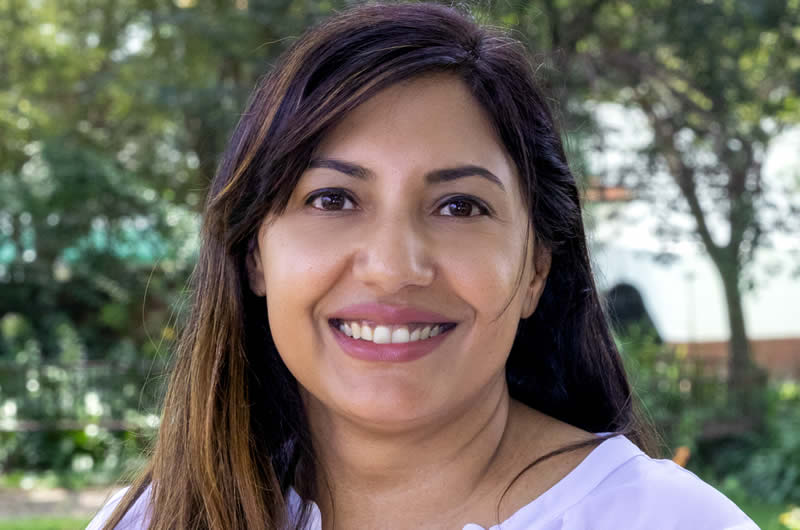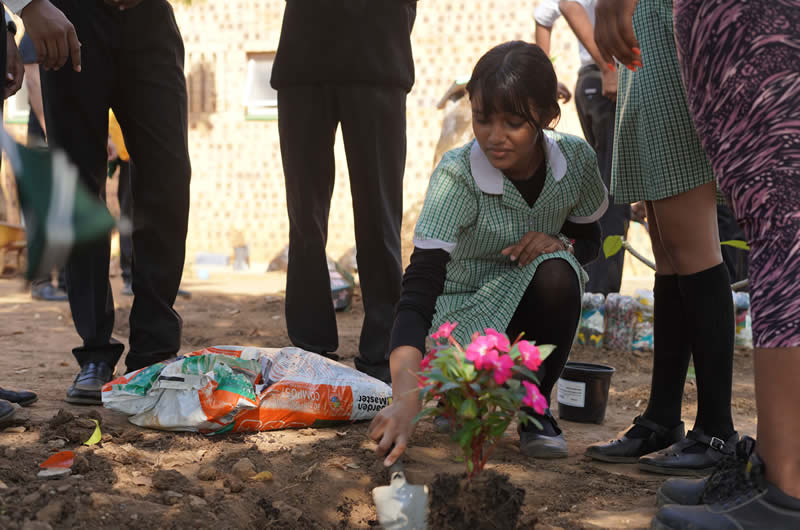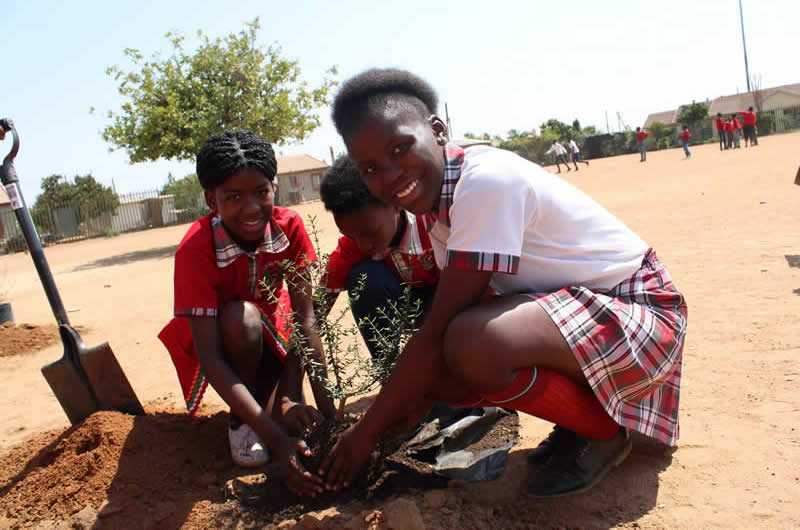
Jun 10, 2024 | eco-schools, News
We are incredibly proud to announce that Aziezah Essop of St Andrew’s School for Girls in Bedfordview, Johannesburg, was honoured with the prestigious Foundation of Environmental Education Global Teacher Award!
Aziezah is the only teacher from South Africa among 17 global winners and 46 shortlisted teachers from 16 countries. During her presentation, she highlighted their whole-school approach to embedding environmental stewardship and climate consciousness into their school curriculum and daily lives.
WESSA has worked closely with Aziezah over the years, and we salute her passion for actively driving environmental awareness and sustainability at her school. Through this award, FEE aims to recognise the efforts of outstanding teachers from the global network who promote and integrate Education for Sustainable Development (ESD) in their schools and communities. This award celebrates professional excellence, outstanding achievements, and spreads inspirational stories.
Congratulations, Aziezah, for this well-deserved recognition!

May 12, 2024 | eco-schools, News
Navigating the challenges of high school can be overwhelming, with academic pressures and social dynamics often taking a toll on students’ mental well-being.
According to a recent UNICEF South Africa U-Report survey, 60% of young people reported needing mental health support in the past year. This represents a 15% decrease
from the previous year’s findings. However, the demand for mental health assistance remains unchanged for those aged 15-24, with 70% indicating a need for support. Female
respondents were 5% more likely than males to seek help for their mental wellbeing.
Ecotherapy Sanctuary at Palmview Secondary
Recognising the importance of emotional resilience, WESSA Eco-Schools with the support of Sun International embarked on a transformative journey at Palmview Secondary School in Phoenix, Durban. The vision was to create a sanctuary where learners and teachers could connect with nature, find solace, and nurture their inner peace. Inspired by the principles of ecotherapy, the Wellness Garden at Palmview Secondary School was born, embodying sustainability at its core. From adopting organic gardening practices to implementing water-saving techniques and utilising reclaimed waste materials, the garden became a living embodiment of environmental stewardship and holistic well-being. It provided a space for learners to unwind, engage in mindfulness practices, and develop practical skills through hands-on activities like composting and planting sessions.
The impact has been profound. Students have embraced the garden as their sanctuary and moments of reflection. Teachers have seamlessly integrated the garden into their curriculum, using it as a dynamic learning environment for lessons on ecology, sustainability, and wellness. Looking ahead, the project aims to expand, incorporating additional features like eco- benches for relaxation and contemplation.
Empowering students to thrive in mind and spirit
As we reflect on the success of the Wellness Garden, we extend our gratitude to all who contributed to its realisation, empowering students to thrive in both mind and spirit. In a time where mental health challenges among school-going children are on the rise in South Africa, initiatives like the Wellness Garden provide safe spaces for learners.
In 2022, the University of Cape Town’s Children’s Institute published the South African Child Gauge which focused specifically on children’s mental health. The report highlighted that South African children are exposed to extraordinarily high levels of adversity, which increases their risk of developing mental health challenges.
It’s not surprising that more than one in 10 children in South Africa have a diagnosable and treatable mental health disorder. This includes depression; anxiety; post-traumatic stress disorder; conduct, learning, and substance-use disorders; as well as neurodevelopmental disorders such as attention deficit hyperactivity disorder and autism.

Apr 12, 2024 | eco-schools, News
In a landmark celebration of two decades of environmental education, WESSA proudly hosted the Eco-Schools Awards, honouring the transformative impact of the Eco-Schools programme across the nation.
For the past 20 years, the Eco-Schools initiative has been instrumental in promoting sustainability and conservation practices within schools and communities. WESSA Eco-Schools have taken the lead in environmental education, equipping students, teachers, and local communities with the knowledge and tools to champion environmental stewardship, encouraging a culture of environmental awareness and responsibility.
Over 2,300 schools have registered for the Eco-Schools programme, engaging more than 1.3 million learners and 32,000 teachers in direct and indirect environmental education efforts. These outstanding statistics highlight the significant impact of the Eco-Schools initiative in shaping environmental consciousness of South Africa’s youth.
The recent annual WESSA Eco-Schools Awards ceremonies, held across six regions, serve as a platform to commend schools, teachers, and learners for their exceptional commitment and achievements in promoting environmental stewardship. Through partnerships with organisations such as Sun International, eWASA, Nedbank, and others, WESSA has been able to amplify the reach and impact of the Eco-Schools programme, driving positive change in communities nationwide.
Among the notable recipients of this year’s awards are Epworth School and The Birches Pre-Primary School in KZN, honoured with Emerald awards for their sustained dedication to environmental action over 20 years. Additionally, 40 International Green Flags were awarded nationally, recognizing schools for their outstanding environmental efforts.
In a shining example of environmental leadership, Kabega Primary School in Gqeberha received a prestigious Diamond award for their decade-long commitment to sustainability. Through initiatives like a comprehensive recycling programme and integrated environmental curriculum, Kabega Primary has emerged as a model of promoting active citizens of environmental stewardship, inspiring change within their school and beyond.
The Department of Basic Education has identified local teacher support as a key objective for achieving educational quality.
Busi Dladla, Director for Curriculum General Education and Training, outlined that by incorporating WESSA Eco-Schools activities into the curriculum, educators provide students with practical experiences that enhance their learning outcomes while nurturing a culture of sustainability.
Dladla’s emphasis on the synergy between Eco-Schools and CAPS curriculum highlights the programme’s significance in shaping holistic education that prepares learners for the challenges of the 21st century. Through project-based learning initiatives, WESSA Eco-Schools empower students to become active participants in their education, encouraging critical thinking, problem-solving skills, and environmental awareness.
Nomfundo Ndlovu, WESSA’s Schools Programme Manager, expressed her pride in the accomplishments of participating schools and the enduring impact of the Eco-Schools programme. “These awards reflect the dedication and passion of our educators and learners towards environmental awareness and action,” she remarked.
For more information about the WESSA Eco-Schools programme and the awards ceremony, please contact Nomfundo Ndlovu at nomfundo.ndlovu@wessa.co.za.



